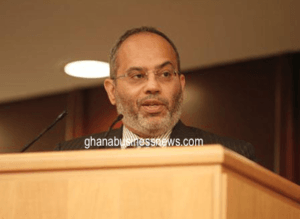Lopes talks about illicit financial flows, Panama papers and inequality in Africa

If the $60 billion lost every year to Africa through illicit financial flows is retained on the continent, it could be used to reduce inequality, Carlos Lopes, the Executive Secretary of the Economic Commission for Africa (ECA) has said.
The causes and consequences of uneven economic growth and rising inequality between and within nations, should never be accepted as a way of life, a press release from the ECA copied to ghanabusinessnews.com has cited him as saying at a symposium jointly hosted by Oxfam and Oxford University.
Mr. Lopes noted that inequalities in Africa could be greatly reduced if illicit financial outflows, which are costing the continent an estimated $60 billion annually, were stemmed.
“Imagine the impact these illicit resources in reducing inequality through social transfers and investments in productive and job creating initiatives,” he said.
He called for collective efforts of both national governments and the international community to address the menace.
“It is an African problem with a global solution. Western countries cannot turn a blind eye to tax avoidance and transfer pricing activities of their trans-national corporations while at the same time lecturing African countries about good governance,” he said.
He pointed out that the Panama papers, leaked recently to the media vindicated the ECA which for some time now has been calling for action against illicit financial outflows from Africa.
“The revelations by the Panama papers laid to rest any doubts by skeptics about the prevalence and gravity of the problem,” he said.
Citing Latin America as a continent that has been successful in reducing inequality while experiencing high economic growth at the same time, he said, “Economic growth created greater demand for domestic goods, moving more people – particularly the poor – into the labour force, driving wage increases.”
“This helped reduce the gap between college-educated workers and those without a college degree,” he added.
He indicated that African leaders are taking the issue of inequality seriously and are working hard through a number of instruments with partner organisations to address the problem.
By Emmanuel K. Dogbevi
